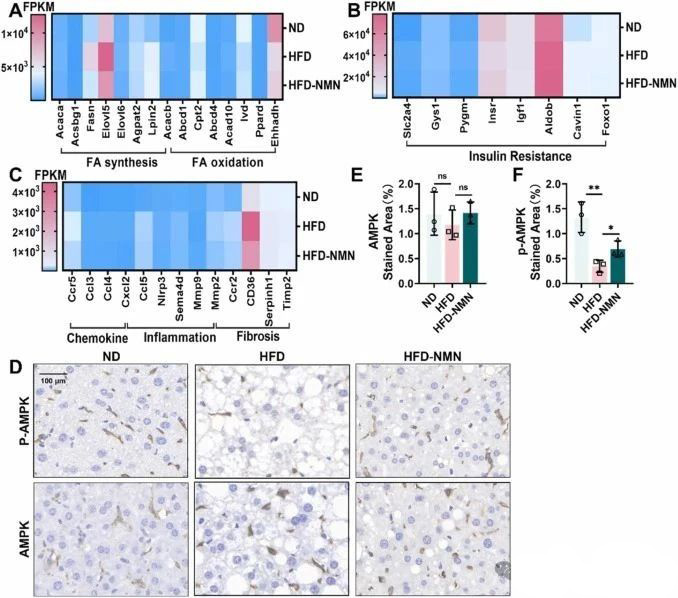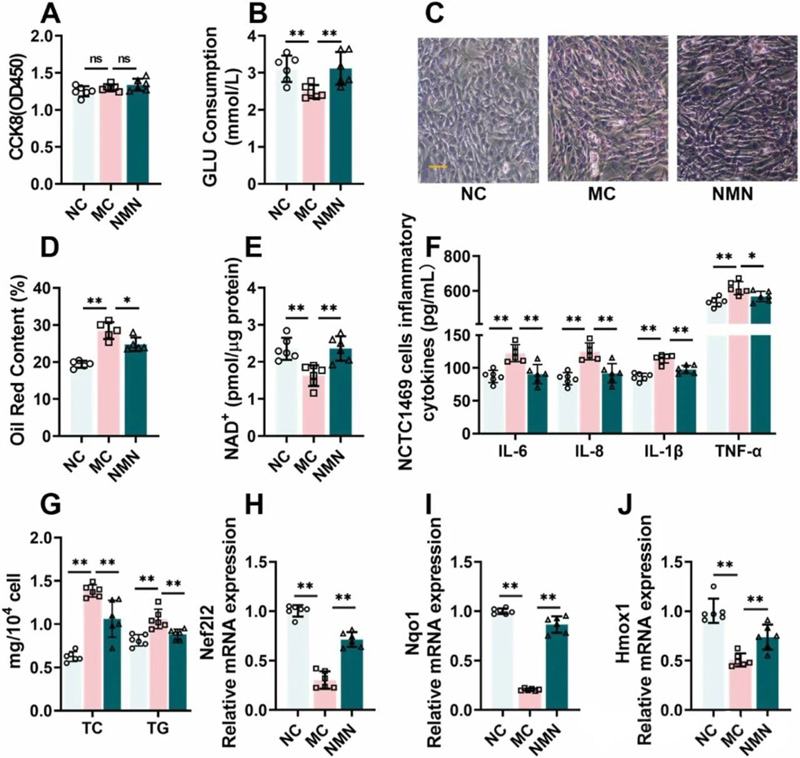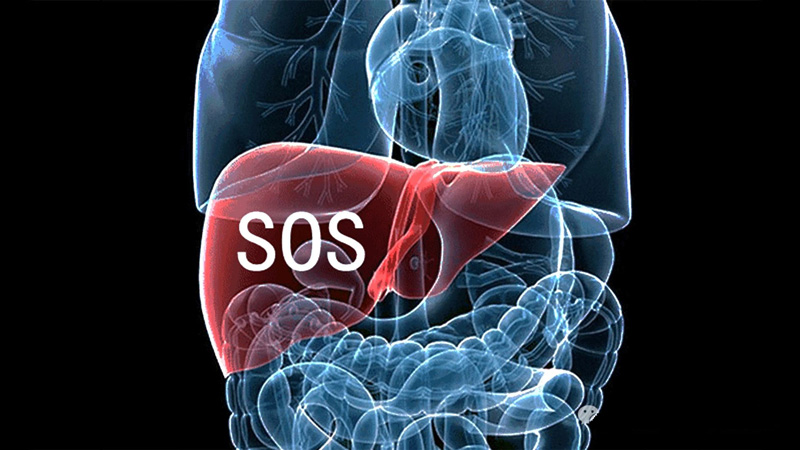NMN improves fatty liver caused by high-fat diet
On May 3, 2024, a breakthrough study published in the journal Biomedicine & Pharmacotherapy revealed the remarkable efficacy of β-nicotinamide mononucleotide (NMN) in alleviating fat accumulation in the liver of mice induced by a high-fat diet (HFD), It provides a new therapeutic perspective for fighting against fatty liver, an increasingly common modern “disease of affluence”.
Worldwide, obesity is growing at an alarming rate, and the main driver behind it – high-calorie, high-fat diets – are increasingly threatening the cornerstone of human health.
According to statistics, in the past decade, the global obesity rate has soared by more than 60%, which has directly exacerbated the incidence of a series of metabolic diseases such as type 2 diabetes, cardiovascular disease, and non-alcoholic fatty liver disease (NAFLD), posing a heavy burden on medical resources.
Effective response to the obesity crisis has become a key issue to safeguard public health.
NMN effectively regulates hyperlipidemia and promotes healthy blood sugar

After 30 weeks on a high-fat diet, mice showed increased weight gain, impaired blood sugar regulation and increased insulin resistance, in sharp contrast to mice on a normal diet.
To effectively reverse and control these health problems, the research team implemented an NMN intervention on mice.
Surprisingly, β-nicotinamide mononucleotide not only effectively controlled the weight gain of mice on a high-fat diet, but also significantly reduced their fasting blood glucose, improved glucose tolerance, and marked a significant recovery of glucose metabolism.
nicotinamide mononucleotide successfully reversed insulin resistance, regulated lipid metabolism, and provided a powerful “antidote” to metabolic disorders caused by high-fat diets.

NMN regulates blood lipid levels
Further studies have shown that NMN intervention can effectively lower blood lipid indicators, including total cholesterol (TC), triglycerides (TG), and low-density lipoprotein cholesterol (LDL-C, often referred to as “bad cholesterol”), which are raised by a high-fat diet in mice, thereby normalizing lipid levels.
Another study revealed that β-nicotinamide mononucleotide may have the potential to inhibit liver inflammation, further broadening its application prospects in maintaining liver health.
These findings confirm the positive role of NMN in regulating the imbalance of fat metabolism and reducing liver inflammation.
NMN regulates fat metabolism: inhibits synthesis and activates AMPK pathway
In the course of the study, the researchers noticed that after the mice were fed a high-fat diet (HFD), their livers showed significant dysregulation of fat metabolism.
To further analyze the potential regulatory role of β-nicotinamide mononucleotide on such metabolic pathways, they evaluated changes in gene expression in mouse livers.
The results showed that two key fat-producing genes showed a strong up-regulation trend in the high-fat diet mice compared to the control group.
It is worth noting that when these mice received NMN intervention, the expression intensity of these genes was significantly reduced, suggesting that β-nicotinamide mononucleotide can effectively slow down the liver fat accumulation process.
This study analyzed the changes of AMPK signaling pathway under the influence of β-nicotinamide mononucleotide.
NMN intervention not only increased the level of p-AMPK protein in the liver of HFD mice, but also played an important role in promoting the positive adjustment of energy metabolism and improving insulin sensitivity.
These findings highlight the positive role of β-nicotinamide mononucleotide in restoring the balance of fat metabolism and countering the pathological process of fatty liver.

NMN reduces liver fat accumulation caused by high fat diet
To explore the role of NMN in alleviating fatty deposition and cell damage in the liver induced by a high fat diet, the researchers conducted a targeted experiment.
The experimental results highlight the positive effects of NMN:
Compared with the non-NMN treated cells, the number and area of orange-red lipid droplets in the NMN treated cells were significantly reduced, indicating a significant decline in fat accumulation, and the level of NAD+ in these cells increased significantly after the palmitic acid (PA) -induced reduction.
This may be related to the improvement of cell metabolism and fat metabolism by NMN.
These results indicate that NMN promotes the effective decomposition and metabolism of fat by regulating metabolism in cells, thus effectively inhibiting the accumulation of fat in liver cells, providing a scientific basis for NMN to combat the prevention and treatment of fatty liver caused by poor diet habits.

Summary
As a new health care product, NMN provides a potential adjuvant treatment for resisting health problems caused by poor diet habits.
Maintaining a healthy lifestyle and a balanced diet remains central to preventing obesity and warding off metabolic diseases.
Focusing on the safety and effectiveness of NMN in humans and filling the gaps in clinical research,
we expect more scientific research results to lay a solid foundation for NMN to enter public health management.
reference
[1] Li Y, Tian X, Yu Q, Bao T, Dai C, Jiang L, Niu K, Yang J, Wang S, Wu X. Alleviation of hepatic insulin resistance and steatosis with NMN via improving endoplasmic reticulum-Mitochondria miscommunication in the liver of HFD mice. Biomed Pharmacother. 2024 May 3;175:116682.




